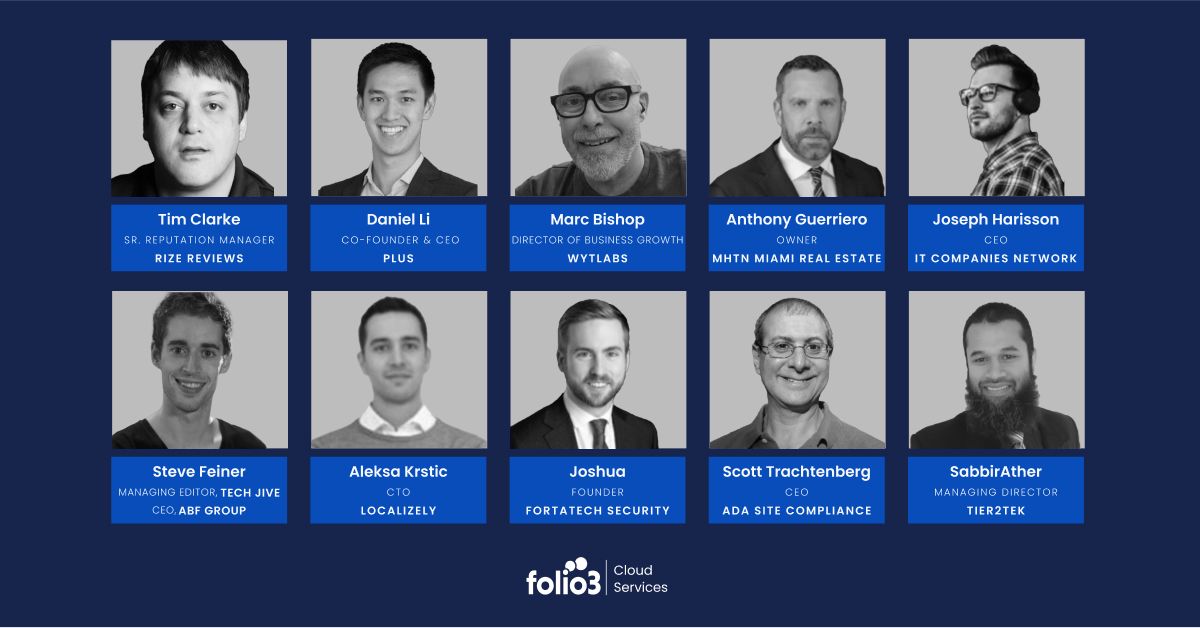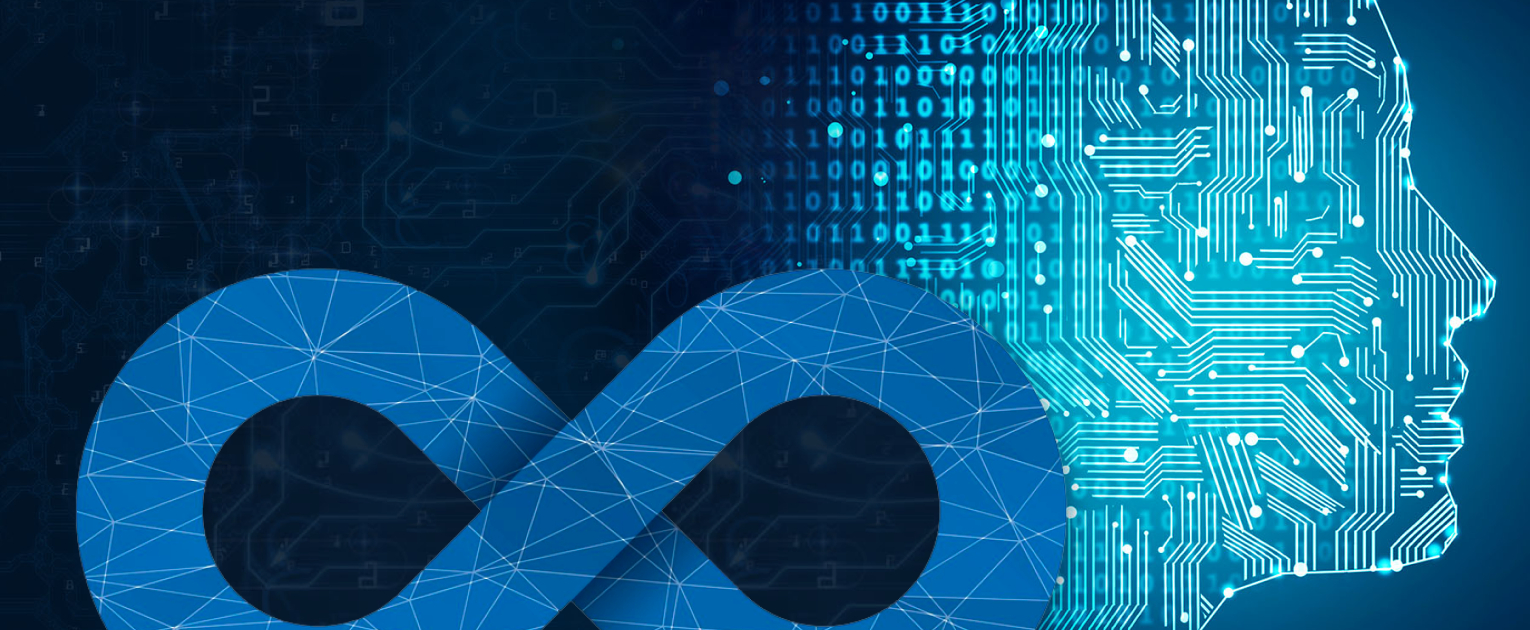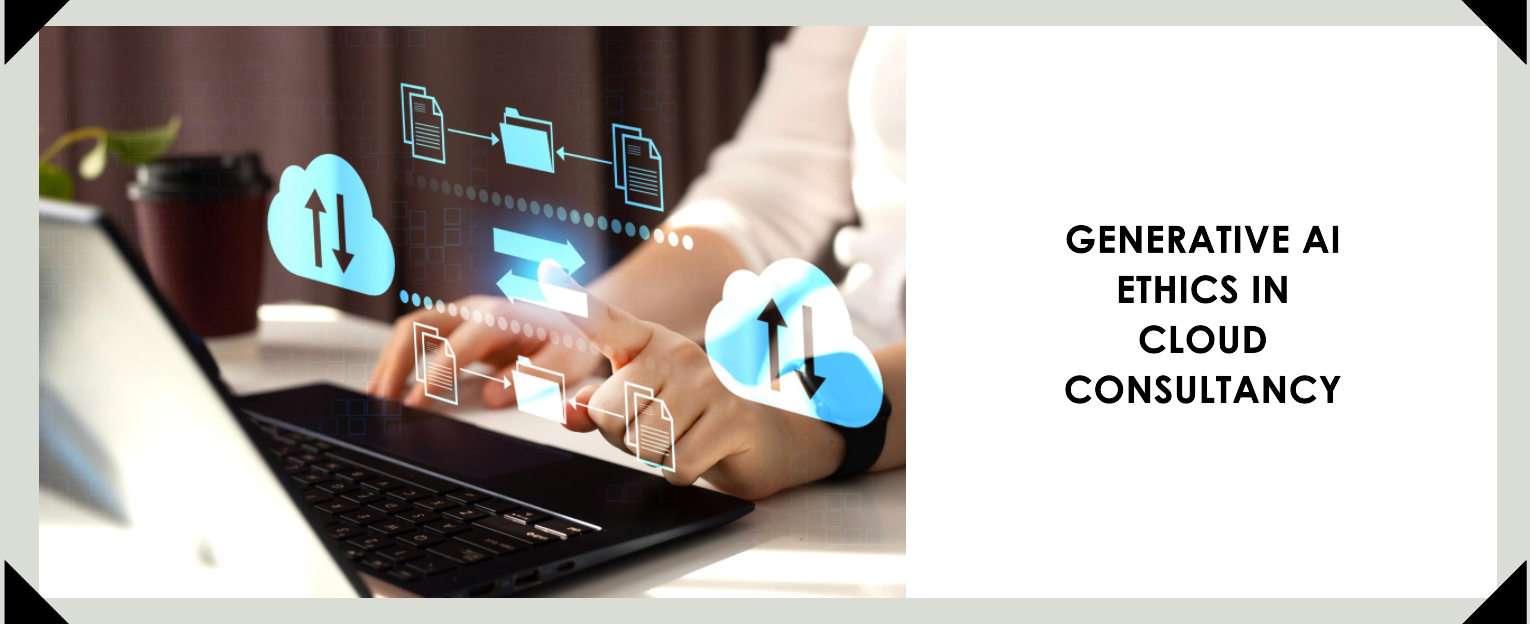Generative AI in Transforming disaster recovery redefines how businesses achieve cloud stability in cloud consulting services. With this technology, businesses can quickly recover from unplanned interruptions due to its proactive approach to disaster recovery.
Introduction
The use of cloud computing is now widespread across all businesses in a world that is becoming more and more digital. Cloud services are important to contemporary corporate operations because they provide flexibility, scalability, and accessibility.
But enormous convenience also comes with great responsibility. It is crucial to guarantee the accessibility, reliability, and integrity of data and applications in the cloud.
Cloud consulting can help in this situation by providing knowledgeable direction and techniques to reduce risks and optimize cloud infrastructure. Additionally, the use of generative AI in disaster recovery planning has changed the game in this field.

Experience the benefits of cloud optimization with our guidance.
Your cloud journey begins here. Let’s explore innovative solutions that enhance your efficiency and scalability. Contact us for a personalized consultation and step into the future of cloud technology.
Generative AI in Disaster Recovery
The traditional approach to disaster recovery planning often entails predetermined processes and receptive answers to unforeseen circumstances, such as data breaches, hardware malfunctions, or natural disasters.
Although these strategies are crucial, they frequently lack the adaptability required in the quick-changing digital environment of today. With its capacity to forecast, adapt, and automate, generative AI gives disaster recovery plans fresh vitality.
1. Continuous Surveillance of Cloud Infrastructure
Generative AI is excellent at the task of continuous observation of cloud infrastructure. It can continuously monitor cloud apps and infrastructure without pause or distraction. This unwavering attention to detail is a key benefit of disaster recovery planning.
Not only this, Generative AI in DevOps has significantly contributed towards introducing automation, efficiency, and innovation into various software development and deployment aspects.
Traditional monitoring methods sometimes rely on predetermined checks or recurrent scans, leaving vulnerable windows unattended. Conversely, generative AI offers a continuous, real-time observation method.
- Detecting Deviations from Normalcy:
One of the advantages of generative AI is its ability to comprehend what is “normal” inside a particular cloud environment. It picks up how cloud resources, applications, and data flows behave.
These baselines enable it to spot even minute differences from the usual pattern. Unusual traffic patterns, spikes in resource usage, or unanticipated changes in data access are a few examples of these aberrations.
Although these early warning indications might not be noticeable to human operators, generative AI can accurately identify them.
2. Finding Redundant Data
Generative AI can intelligently examine data across cloud architectures for disaster recovery. It is exceptional at locating redundant or double-entry data items. When there are several copies or revisions of the same data in the cloud environment, redundant data is present.
This duplication can waste precious storage space and reduce the speed at which data can be retrieved during disaster recovery.
- Efficient Compression Algorithms:
Generative AI uses advanced deduplication methods to remove duplicates once it identifies redundant data effectively.
Deduplication ensures that each distinct piece of data is only stored once, and references to that data are updated as necessary. This method greatly reduces the infrastructure of the cloud’s overall data footprint.
3. Accurate Predictions
Generative AI systems get better and better at making accurate predictions as their algorithms are improved over time.
These forecasts cover anything from identifying potential weaknesses to estimating the possibility of certain catastrophes to foreseeing the effects of various crises on cloud infrastructure.
This precision enables cloud consulting services to avert crises proactively or respond to them more effectively when they do occur.
- Staying Ahead of Emerging Threats:
Cloud consulting services use threat information feeds to stay ahead of developing risks.
These feeds deliver up-to-date details on new threats, weaknesses, and attack methods.
With the help of generative AI, organizations can collect and evaluate this threat intelligence in real time, proactively addressing weaknesses and preparing for possible attacks before they happen.
4. Cloud Hybrid Integration
Hybrid cloud integration is crucial for enterprises looking to take advantage of both on-premises infrastructure and public/private clouds.
In this setting, Generative AI in Transforming disaster recovery becomes even more important, especially when it is included in the services provided by cloud consulting services.
- Data Uniformity Across Environments:
Data and applications are dispersed in hybrid cloud configurations between on-premises and cloud environments. Consistency in data is maintained through generative AI.
It continuously scans data from every place, looking for inconsistencies or conflicts. This level of supervision is essential for maintaining data integrity and ensuring that applications work without a hitch during disaster recovery.
5. Multi-Cloud Disaster Recovery
Multi-cloud disaster recovery is a tactical strategy that uses various cloud service providers to create higher degrees of redundancy and resilience.
It enables businesses to spread out their cloud resources, lowering the danger of a single point of failure. A potent technique for coordinating and executing disaster recovery across various cloud providers in this arrangement is generative AI.
- Seamless Backup and Recovery Operations
Ensuring that failover and recovery operations between various cloud environments are seamless is one of the main issues in multi-cloud disaster recovery. Generative AI is excellent at coordinating these actions.
When a crisis happens, it may instantly start failover procedures to switch operations from one cloud to another.
It thoroughly checks the condition and availability of resources in each cloud provider. By acting quickly and automatically, this approach reduces downtime and guarantees company continuity.
How Generative AI Can Help in Disaster Recovery Planning (Insights from Experts)

Gain expert insights into how generative AI technology impacted cloud consultancy
1. Tim Clarke Sr. Reputation Manager at Rize Reviews

Q1) How Generative AI Technology Impacted Cloud Consultancy
Cloud platforms are essential for generative AI’s power to be unleashed because they offer a mechanism for the technology’s quick development, scalability, and full potential to be realized. Some have called this technology a game-changing one.
Beyond this, however, managed access to pre-trained foundation models and APIs is one of the most significant advantages of cloud platforms for generative AI. These tools serve as a launching pad, allowing developers to advance without starting from scratch.
Pre-trained models save a substantial amount of time and computational resources by capturing the knowledge and experience of generative AI professionals. By utilizing these models, developers can accelerate their projects while concentrating on customization and fine-tuning rather than investing numerous hours in model training.
Enterprises can create and host their foundational models if they choose, but doing so is very expensive, complex, and time-consuming and calls for big teams of specialized personnel. Integrating generative AI capabilities into existing and freshly developed applications is made more accessible by cloud provider APIs that abstract the difficulties of generative model designs. Enabling developers to harness generative AI’s capabilities without requiring in-depth knowledge of model construction democratizes access to it.
2. Daniel Li co-founder and CEO at Plus

Generative AI technology has transformed the landscape of cloud consulting, providing firms with a strong arsenal for optimizing operations and driving innovation. Cloud consultants can now swiftly produce personalized solutions for challenging cloud infrastructure difficulties by leveraging Generative AI capabilities, decreasing the time and effort necessary for problem-solving. This transformational technology improves cost-efficiency by automating repetitive processes, optimizing resources, and boosting security through predictive analysis. Furthermore, it enables consultants to develop dynamic, data-driven strategies that allow firms to scale effortlessly, improve customer experiences, and stay ahead of the competition in today’s fast-paced digital market.
3. Marc Bishop Director of Business Growth at WYTLABS

In reference to your query, Generative AI technology has had a profound impact on cloud consultancy, offering businesses several key advantages. It has enabled cost optimization by analyzing data and recommending cost-effective cloud configurations. Automation and efficiency have improved as AI automates repetitive tasks, allowing consultants to focus on more strategic efforts.
Enhanced security is another benefit, with AI systems detecting threats and anomalies, bolstering cloud security. Predictive analytics help consultants preemptively address issues, and custom solutions are designed based on specific business requirements, enhancing cloud implementations.
Real-world examples illustrate the critical role of Generative AI in successful cloud transformation projects, such as infrastructure optimization for cost savings, security and compliance enhancements in healthcare, and performance optimization during peak seasons for e-commerce platforms. These examples highlight how Generative AI elevates cloud consultancy outcomes, promoting efficiency, cost savings, and performance for businesses.
4. Anthony Guerriero, the owner of Manhattan Miami Real Estate

Generative AI has already proven itself as the best solution for the services operating in the cloud. In my opinion, since it works in the data-driven approach with advanced algorithms, generative AI can work at its best even in the domain of consultancy. With the data, information and analysis on one side and queries and problems on the other side, it can function perfectly in these circumstances. It is just the early stage of the development of generative AI and so many people would disagree with the probability of its capabilities, however observing the trend and people working on it across the globe, there is a high chance that AI can create a huge platform in the cloud-consultancy.
5. Joseph Harisson, CEO of IT Companies Network

Q1) Impact of Generative AI Technology on Cloud Consultancy
Generative AI technology is revolutionizing cloud consultancy by:
Automating tasks and processes to improve efficiency and save time and effort. Strengthening security measures by identifying vulnerabilities, detecting anomalies, and proactively addressing risks.Optimizing resource allocation to ensure cost-effectiveness and optimal performance. Providing valuable insights and recommendations for informed decision-making.
Q2) Examples of Successful Cloud Transformation Projects with Generative AI
Here are a few recent examples:
A leading financial services company used generative AI to develop a fraud detection system that analyzes transaction data and user behaviour to identify suspicious patterns and flag potential fraud in real time. This system has helped the company prevent millions of dollars in losses.
A major cloud provider used generative AI to optimize its data centre operations. This resulted in a 10% reduction in energy costs and a 5% improvement in performance.
A global manufacturing company used generative AI to develop a predictive maintenance system that analyzes sensor data to predict potential failures in its cloud-based machinery. This system has helped the company reduce downtime by 20%.
These are just a few examples of how generative AI is being used to transform cloud consultancy and deliver tangible benefits for businesses of all sizes.
Additionally, generative AI is being used in cloud consultancy to:
Generate realistic synthetic data for testing and training cloud-based applications and systems. Develop personalized cloud solutions tailored to the specific needs of each business.
Automate the migration of workloads to the cloud in a secure and efficient manner. Provide continuous monitoring and optimization of cloud resources to ensure optimal performance and cost-effectiveness.
Overall, generative AI is a powerful tool that can help businesses of all sizes achieve their cloud transformation goals.
Final Tip:
If you are considering using generative AI for your cloud consultancy needs, be sure to partner with a reputable provider with experience in this emerging technology.
6. Steve Feiner, Managing Editor of Tech Jive and CEO of ABF Group

The scalability, flexibility, and cost-effectiveness of cloud-based technology have quickly revolutionized how firms operate. Cloud Consulting firms have emerged to help businesses make use of the power of cloud computing as significant enablers of this change.
Generative AI technology impacted cloud consultancy
With its potential to boost productivity, and efficiency, and provide new chances for innovation, generative AI has the potential to have a substantial impact on the corporate sector. Businesses can use generative AI to further their objectives by being aware of the many subtypes and their primary applications.
AI’s benefits go beyond just improvements in business and consumer goods. AI has the potential to herald in a new era of governmental services when used responsibly, with the technology being completely governed, privacy safeguarded, and decision-making being open and explicable. By increasing labor productivity and lowering operational costs in the public sector, these services can empower citizens and aid in rebuilding trust in government institutions. On the backend, AI has the ability to significantly speed up digital modernization by, for instance, automating the transition of outdated software to more adaptable cloud-based apps or quickening the modernization of mainframe programs.
It is possible to simplify the frequently complex process of claims administration by using generative AI models. They can produce automated solutions to simple claim queries, speeding up the handling of insurance claims and the overall claim settlement procedure.
7. Aleksa Krstic CTO of Localizely

A1) Generative AI technology has had a significant impact on cloud consultancy by enabling businesses to harness the power of artificial intelligence in their cloud infrastructure. With Generative AI, businesses can automate tasks such as data analysis and decision-making, leading to increased efficiency and accuracy.
One key benefit of Generative AI in cloud consultancy is its ability to generate synthetic data. Synthetic data can be used to address privacy concerns or enhance the training of machine learning models without relying solely on real-world data. This can be especially valuable for businesses operating in highly regulated industries or dealing with sensitive customer information.
Generative AI also enables businesses to automate the creation and optimization of cloud infrastructure. By leveraging AI algorithms, businesses can design and deploy cloud-based systems that are highly efficient and cost-effective. This not only saves time and resources but also ensures that the cloud infrastructure is tailored to meet specific business needs.
A2) There are several successful cloud transformation projects where Generative AI has played a crucial role. One example is in the field of image recognition and processing. Generative AI can be used to automatically analyze and categorize large volumes of images, allowing businesses to extract valuable insights and improve their products or services. For instance, a company in the e-commerce industry can use Generative AI to automatically tag and categorize product images, making it easier for customers to find what they are looking for.
Another example is in the field of natural language processing (NLP). Generative AI can be used to generate human-like text or to enhance language translation services. For instance, a cloud-based translation platform could utilize Generative AI to improve the accuracy of machine translation by generating more natural and contextually relevant translations.
In both of these examples, Generative AI enhances the outcomes by automating tasks that would otherwise be time-consuming or require extensive human resources. It allows businesses to process and analyze large amounts of data more efficiently, leading to improved productivity and the ability to make better-informed decisions.
8. Joshua, the founder of FortaTech Security

As the founder of a cybersecurity advisory company, I can attest that generative AI has had a significant influence on our cloud consulting initiatives. One example involved a client in the healthcare industry who wanted to safely migrate sensitive patient data to the cloud. By automating the configuration of security protocols and ensuring compliance with healthcare regulations, generative AI played a crucial role. It improved resource allocation, which reduced costs and enhanced performance. Security was further strengthened by real-time monitoring and threat detection capabilities. The end result was a seamless and secure cloud transformation that enhanced data accessibility for medical professionals while also satisfying compliance requirements. In our consulting work, the ability of generative AI to customise cloud solutions to particular business needs has proven invaluable and improved outcomes for clients from a variety of industries.
9. Scott Trachtenberg, CEO of ADA Site Compliance

Q1) How has Generative AI technology impacted cloud consultancy, and what are its key benefits to businesses in this context?
Security and Compliance:
The use of generative AI increases both the amount of security and compliance that may be achieved in cloud consultancy. These AI models can proactively identify vulnerabilities in cloud environments and settings by assessing cloud environments and configurations and proposing best practices for compliance with industry standards and regulations. They lend a hand in the formulation of comprehensive security rules and settings, which in turn aid in the protection of cloud infrastructure and data. This guarantees that cloud environments continue to be robust against new threats and that businesses continue to be compliant with the requirements set forth by regulatory bodies. In today’s increasingly complicated landscape of cloud security, the incorporation of generative AI into cloud consultancy not only strengthens existing security postures but also provides clients with greater peace of mind.
10. SabbirAther Managing Director of Tier2Tek Staffing Agency

Generative AI technology has ushered in a new era in cloud consultancy, offering businesses a game-changing ally. It’s akin to having a financial whiz in your corner, meticulously dissecting data to trim expenses and fine-tune your cloud infrastructure. Visualize it as your resource commander, meticulously managing computing power and storage resources to ensure your investments are spot on, sparing you from unnecessary overhead.
Moreover, it functions as your vigilant security partner, diligently monitoring cloud activities and promptly alerting you to any suspicious incidents. Beyond that, it’s your trusty automation sidekick, deftly handling repetitive tasks, and liberating your time for strategic pursuits. In essence, it’s the ultimate team player, consistently evolving to keep you at the forefront of the cloud landscape.
Conclusion:
The significant influence of Generative AI in Transforming disaster recovery through cloud consulting services is highlighted by its inclusion in disaster recovery planning.
The rise of generative AI as a strategic asset enabling these services to predict, adapt, and protect against interruptions proactively aligns with enterprises’ efforts to optimize their cloud infrastructures and strengthen their resilience.

Experience the benefits of cloud optimization with our guidance.
Your cloud journey begins here. Let’s explore innovative solutions that enhance your efficiency and scalability. Contact us for a personalized consultation and step into the future of cloud technology.









